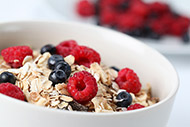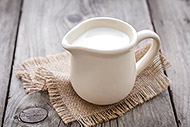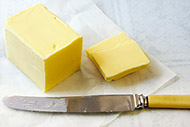
A cleanse is a short-term diet that claims to rid the body of toxins, increase energy, and initiate weight loss. Most cleanses limit calorie intake to juice and can last from one day to a week.
Sometimes cleanses are called detox diets. Whichever term is used, this type of diet should signal a red flag. While you can gain healthy nutrients from fresh juice, a diet of only juice can put a nutritional strain on the body. Juices lack a) protein for building tissues and maintaining muscle mass, b) fiber for fullness and gut health, and c) healthy fat to aid in absorbing fat-soluble vitamins. Plus, if you eat a healthy, balanced diet, you shouldn't need to do anything special to "detox" your body. The liver and kidneys should already efficiently remove toxins from your body.
If you are a healthy adult, a one-day juice cleanse may not harm your overall health, but an extended cleanse could have consequences. A lengthy cleanse can decrease the ability to concentrate, affect mood, and cause nutrient deficiencies. While you may lose weight due to decreased calories and water loss, the weight will likely be gained back once you return to your eating routine. This has an unhealthy yo-yo effect on body weight.
When presented with a cleanse, do some research. Not all cleanses are bad. Some programs do involve balanced, healthy meals and snacks. Skip programs that require a liquid diet or unusual dietary supplements. Trust what you know about healthy eating. Focus on balance, variety, lean protein, heart-healthy fat, fruits, and vegetables to accomplish your nutrition and weight loss goals.



 3 Healthy Lunches for Your Work Week
3 Healthy Lunches for Your Work Week
 5 Tips for Stretching Your Budget for Healthy Food
5 Tips for Stretching Your Budget for Healthy Food
 Best Ways to Reduce Added Sugar
Best Ways to Reduce Added Sugar
 Healthy Tips to Lighten Up Picnic Foods
Healthy Tips to Lighten Up Picnic Foods
 Do You Need to Drink Milk?
Do You Need to Drink Milk?
 Tips to Keep Track of Water Intake
Tips to Keep Track of Water Intake
 Butter vs. Margarine: What’s the Best Choice?
Butter vs. Margarine: What’s the Best Choice?
 7 Good Mood Foods
7 Good Mood Foods

 Pinterest
Pinterest RSS Feed
RSS Feed